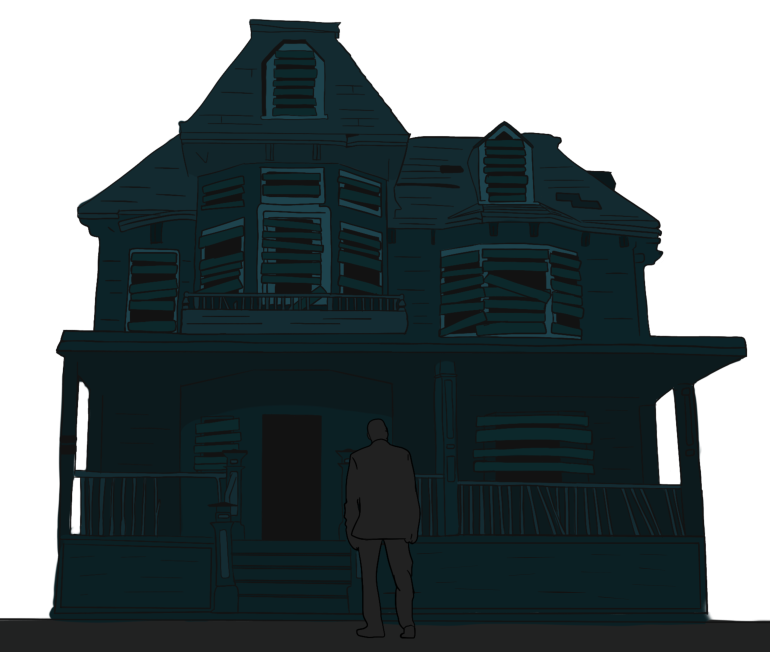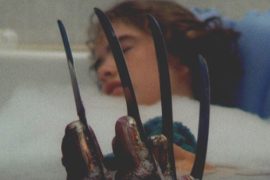What would you do to make your dreams come true? That is one of the many questions at the heart of Mike Flanagan’s newest horror series on Netflix, The Fall Of The House Of Usher. Premiering just before this October’s Friday The 13th, House of Usher adapts several Edgar Allen Poe stories into hour long interconnected horror tales about the titular Usher family and their demise. It manages to weave heavier, darker concepts of our modern world into each episode without sounding too heavy handed and ultimately cements itself as another touchstone in Flanagan’s cinematic canon.
The cast of House of Usher is the heart of the series, with Flanagan employing a rich, diverse cast with deep complex backstories. Among the cast is Bruce Greenwood (Gerald’s Game), as well as a number of actors that Flanagan has frequently worked with on previous projects such as Midnight Mass and The Haunting Of Hill House like Rahul Kohli (Bly Manor) Samantha Sloyan (Midnight Mass), Carla Gugino (Hill House) and Kyleigh Curran (Doctor Sleep). Each character in the Usher family has a unique angle to their personality that makes them not only memorable but likable in a strange tragic way.
Each episode adapts a different Poe short story to its runtime while also expanding and deepening the questions we have about the Usher family’s past, bringing us closer and closer to the known fact that the entire family will soon crumble and wither away. It’s all about how and when the Ushers will meet their demise that keeps the show so interesting. In a way, it’s Final Destination meets Succession. In “The Masque Of The Red Death”, we swap out the castle party for a warehouse party, still with a protagonist named Prospero, now Perry for short, and in “The Tell-Tale Heart” we explore a ticking noise that torments one of the Ushers that specializes in a new heart implant that isn’t ready for human testing. Each of these twists and others modernizes the Poe tales without losing what made them so effective.
One of my favorite things about the show was how it chose to commentate on each subject’s relevant real life counterpart. It’s established that the Usher family is a pharmaceutical company that was a key player in the Opioid Crisis, which mirrors the infamous Sackler family and Purdue Pharma, and explores the damage that the Usher family’s distribution of their drug, Ligadone, does to people all around the world. The family has gained a reputation for their corrupt deeds, and their secrets are mostly out in the world, yet their corruption is almost what gives them power.
From a writing perspective, another element I enjoyed throughout the show was the monologues. Flanagan is known for writing dense monologues in his projects that often allow the viewer to meditate on the themes and ideas of the series between the horrors and the bloodshed, and House of Usher is no exception. Characters give almost gothic soliloquies in the manner in which they speak their deepest desires, digging into morality, power, self-hatred, and what it means to have a meaningful life.
Flanagan has been making films and series that have been causing viewers to speculate about their own place in the world time after time, with Hill House inviting viewers on a journey into grief, Bly Manor being an adaptation of The Turn Of The Screw by Henry James, and Midnight Mass being a meditation on religion and the meaning of God. To me, House of Usher is a tale about morals and the lengths that people will go to in order to achieve success, fame, and fortune.
As of this fall, Mike Flanagan is currently filming an adaptation of a Stephen King short story called The Life Of Chuck, starring Tom Hiddleston, Mark Hamill, and a slew of Flanagan regulars, due to release sometime in the near future. But for now, we’ll have to take a seat at the table of Roderick Usher and listen as he explains the horrifying demise of everything he held dear to him.





